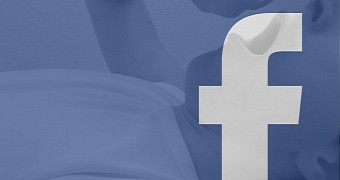Researchers from the University of California, Irvine (UCI), have discovered a link between compulsive Facebook usage and people who suffer from acute sleep deprivation.
The study was carried out in the spring of 2014 and included 76 UCI students, 34 males and 42 females. UCI researchers logged information about the students' gender, age, the number of courses each one took, any deadlines they might be facing, stress levels, and the time when they went to sleep and woke up.
Each student had to fill in a report on their activities each morning and evening, and also had to agree to have monitoring software installed on their computer and smartphone.
This software logged when the devices were in use and also what applications were currently active and when the user switched between them.
ALT-Tabbing to Facebook is a sign you're not sleeping enough
After compiling all the data at the end of the study, researchers found that students who had very little sleep were more prone to distractions.
Since Facebook is easy to use, almost all the subjects' friends use it, and it is easily accessible from any device, researchers observed that many students would interrupt their daily activities to access the social network, even if for short amounts of time.
The less the test subjects slept, the more distracted they became, and the more often they'd end up on Facebook the following day.
Study can help companies find and combat workforce inefficiency
Additionally, the researchers say that these students also showed an unpleasant mood, but I don't think anybody needed a study to tell them sleepy people are grumpy.
On the other hand, the study revealed crucial information that can be quite useful in a corporate environment. Companies that monitor their employees' network traffic or that log computer usage can tell which of their employees is suffering from sleep deprivation.
This information can then be relayed to doctors, who can approach the employee for counseling and even treatment.

 14 DAY TRIAL //
14 DAY TRIAL //